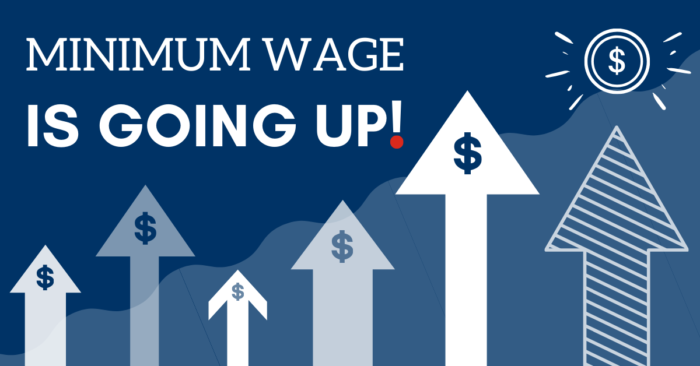Employers Beware: Exempt Salary Increase as Minimum Wages Increase
December 30, 2021 10:22 amEmployers Beware: Exempt Salary Increase as Minimum Wages Increase
by Doug Larsen of Fishman, Larsen, & Callister

Minimum Wage Increase in 2022
On January 1, 2022, California will hit its goal of $15 per hour minimum wage for businesses with 26 or more employees. Minimum wage for smaller employers will be $14 per hour in 2022. Next year small employers will be required to pay the $15 per hour minimum wage. What employers often forget is that when the minimum wage increases, so does the salary level for exempt employees.
Salaries for Exempt Employees Increase in 2022
Under California law, an employee may be exempt if the employee functions as a manager, administrator or professional and if the employee is paid at least two times the minimum wage in the form of a salary. This means that a large employer in California must pay its exempt employees at least $62,400 and a small employer must pay its exempt employees $58,240 to maintain the exemption.
When we speak of an “exemption” we are typically saying that the employee is exempt from overtime compensation. In California, “exemption” also means that most of the provisions of the Wage Order do not apply to the employee. Accordingly, an exempt employee – a person who passes the salary test and the duties test as a manager, administrator or professional – cannot assert many of the wage and hour claims that non-exempt employees can make. Maintaining that exemption, although it comes with a high salary, can be a powerful tool for any employer. If you want to maintain the exemption, be sure to increase the salaries of exempt employees to meet the statutory minimum.
What Happens If You Fail to Pay the Minimum Salary
If you fail to pay the salary minimum, your employees who may be exempt in 2021 are not exempt in 2022. This means they are entitled to overtime compensation, among other things. However, most employers won’t be keeping the formerly exempt employee’s time (which is a time-keeping violation). This means that paycheck stubs are inaccurate, and you are subject to awards of damages and civil penalties. Meal period violations may occur, resulting in an additional hour of compensation as a “premium.” Moreover, if that premium or overtime is not paid by the time the formerly exempt worker’s employment ends, you will be liable for up to 30 days of pay in the form of waiting period penalties.
FLC Represents California Employers
The law firm of Fishman, Larsen & Callister represents and fights for California employers. Contact us if you are a California employer and need help navigating California’s employment laws.
